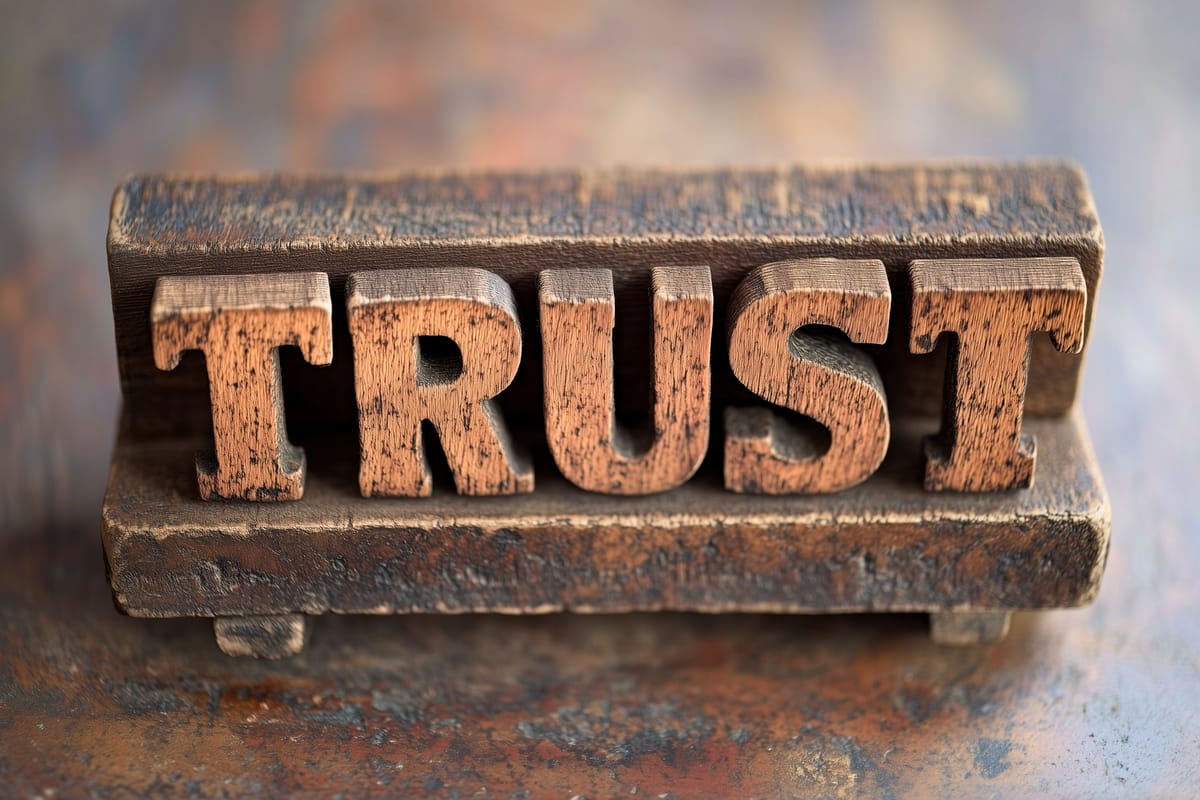Trust me, I’m a journalist
We're labouring under the illusion that the public trust us. Time to wake up.

Journalists presume trust. Creators establish it. That, at least, is the idea behind a discussion (from last December — I missed it at the time) between Charlie Warzel of The Atlantic and Julia Angwin, founder of the news organisations the Markup and Proof News.
Here’s how Angwin expresses it:
Any little bit of credibility they have, they tell you up front. Even if it’s a makeup artist on TikTok who’s huge, she’ll tell you her bona fides, like that she’s worked at Ulta or some beauty store. They like to lead with credentials, and then they demonstrate their expertise: I’ve tried seven different eyeshadows so you can figure out which one is the best one. This is a key distinction from journalism. What journalism often does is, it tells you in the beginning which eyeshadow is the best. The headline will be like X Is the Best Eyeshadow, and the lead spells out the conclusion and what the piece will argue—you don’t get to the evidence until closer to the bottom.
That’s an intriguing idea to me. We, in journalism, have a reflexive expectation of trust because we’re typically working for long-established brands. The brand grants trust to the journalist, as long as it holds trust in the eyes of the reader – or so we assume.
But we know that we have lost that trust. The Reuters Institute has been banging on about this for years. And quite rightly. Angwin’s insight is that we need to invert our thinking, and learn from the new publishers on the block:
Creators flip it. They start with the question: Which one’s the best? And then they show people, trotting out the evidence. They don’t always draw a conclusion, and sometimes that is more engaging for an audience. It builds credibility. And so it is just an entirely flipped model that I think journalism really has to start thinking about.
The trust problem we’re avoiding
I’m not convinced that, as an industry, we’ve completely assimilated how bad the trust situation has got. The reason I stumbled across this older piece is that another blogger, Alan Jacobs, highlighted a different quote from the piece, this time one from Warzel:
There is a palpable anger and skepticism toward corporate media, and many have turned to smaller publications or individual creators whom they feel they can trust, even if these groups are not bound to the rigor and standards of traditional outlets.
To which Jacobs responds:
I think Warzel’s framing of the issue is telling. Anyone skeptical of contemporary American journalism would instantly flag the phrase “the rigor and standards of traditional outlets”: “Hey Charlie, I think you mean ‘the rigor and standards that traditional outlets claim to uphold but in fact do not.’”
And that had me flashing back to discussions two decades ago as bloggers emerged. One of the arguments often made was that journalists were more professional, trustworthy and accurate than bloggers. And even back then, the evidence people encountered was that sometimes that was the case, but far from the whole time.
One last chance on trust
We have failed to learn that lesson. Perhaps that’s because blogging withered under siege from the social platforms. Maybe it's because the industry has been great at assimilating the best bloggers into the very heart of mainstream, journalist. Ezra Klein feels like the canonical example of that. The issue became a non-issue. But all the time, trust in journalism was desiccating.
We can’t botch this again. As the media landscape explodes, and AI further erodes trust in journalism, we can no longer presume that people trust us simply because we’re attached to an established brand. And we need to lose any hesitation about displaying our bona fides prominently – and exposing our processes when necessary.
Show credentials, earn trust
It seems likely that highlighting authors, their experience, and their expertise in explorable ways – links that you can follow – is one response to making human content stand out from AI slop. As the amount of fake content – and fake “experts” as Press Gazette has mercilessly exposed this week – grows, trust and authority is likely to become a major battleground in the coming years.
(The sheer fact that multiple publishers are pulling pieces where the quoted non-existent experts rather reinforces Jacobs’ point about “the rigor and standards that traditional outlets claim to uphold but in fact do not”, doesn’t it?)
Unlink 20 years ago, this time we’re coming from behind on the issue of trust because there’s a whole industry of creators out there that have been practicing this for years. We’re playing catch-up on trust, and it’s not going to get any easier.





